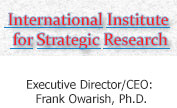Diplomacy is the art or science by which entities interrelate in a friendly manner for their mutual benefits.
According to Dictionary.com:
- the conduct by government officials of negotiations and other relations between nations.
- the art or science of conducting such negotiations.
- skill in managing negotiations, handling people, etc., so that there is little or no ill will; tact: Seating one’s dinner guests often calls for considerable diplomacy.
Origin of diplomacy
- 1790–1800; < French diplomatie (with t pronounced as s)
Related concept: protocol: a system of rules that explain the correct conduct and procedures to be followed in formal situations; a document that describes the details of a treaty or formal agreement between countries (Merriam-Webster)
States maintain diplomatic relations at bilateral and multilateral levels. At the bilateral level, two states enter into diplomatic relations with representatives in a reciprocal manner generally wth ambassadorial status. At the multilateral level, countries may have representatives in regional organizations where they conduct negotiation and enter into multilateral agreements, for example at the Association for South Eastern Nations (ASEAN) and international organizations such as the United Nations which is perhaps the most important international diplomatic forum given the comprehensive functions entrusted to that organization through its Charter.
http://www.un.org/en/charter-united-nations/
Countries also maintain consular relations again with reciprocal representation with a broad range of duties such as the issuance of travel visas and procedures for commercial transactions. ‘Rights and duties of states as they send and receive consular representatives is the subject matter of the field of consular relations. The law relating to consular relations governs the process for accreditation of consular representatives, the obligations of the receiving state to facilitate consular functions, immunities enjoyed by the sending state for the premises it uses and the functions in which it engages, and immunities enjoyed by consular representatives. This body of law also relates to individual nationals of sending states because consuls perform functions relating to the activities of their nationals in the territory of the receiving state; for example, marriage, the administration of estates, and criminal arrest and prosecution. The law on consular relations is found in customary international law, based on practice extending back a number of centuries. To a large extent, that customary law has been codified in a multilateral treaty that enjoys wide adherence, the Vienna Convention on Consular Relations (1963). In addition, many states conclude treaties bilaterally with other states to provide for the specifics of the consular relations they desire. In Europe the states of the European Union (EU) have consolidated their consular efforts to a certain degree. Consular law is given mention in many general treatises on international law. While much helpful information can be found in such general treatises, they are too numerous for inclusion here.’
Source: http://www.oxfordbibliographies.com/view/document/obo-9780199796953/obo-9780199796953-0014.xml
The high levels representatives (diplomatic and consular) are usually political appointees generally with technocratic experience; they are assisted by a broad range of staff from deputies to attaches.
When relationships between the US and Cuba improved a few years ago, the two countries established diplomatic relations at the full ambassadorial level in a reciprocal manner. When Southern Sudan achieved independence a few years ago, again many countries established diplomatic relations with that new country. Diplomatic relations at the bilateral level means that a constant dialogue is going on and efforts made to improve relations.
As an example of multilateral diplomacy, on the tricky subject of migration, countries undertook negotiation at the United Nations to come up with an international agreement to ensure that migration is undertaken in an orderly manner according to set principles. On the complex subject of climate change, after years of negotiation, countries met in Paris in 2015 and negotiated and adopted the Treaty of Paris on Climate Change which was subsequently ratifed by the number of countries required and the Treaty entered into force and is now under implementation.
It takes years of education, training and work experience to become a full-fledged diplomat. Henry Kissinger is someone who was teaching international law and diplomacy for years who then served in a high level diplomatic position for many years and later on became an adviser on diplomatic matters; he wrote books conveying his knowledge and experience for others to learn from.
Download his book on diplomacy:
https://euroclassworks.files.wordpress.com/2015/03/download-kissingers-diplomacy.pdf
Well known universities on the subject areas are Georgetown University, City College (City University of New York) with its well-known Master’s degree in International Affairs and of course Fletcher School of Law and Diplomacy, just to mention a few examples. At the international level, the Clingendael Institute operating in The Hague is world famous and so The Hague Academy of International Law..
https://www.ccny.cuny.edu/irprogram/why
http://osce-network.net/partner-institutions/list-of-institutions/ciir/
